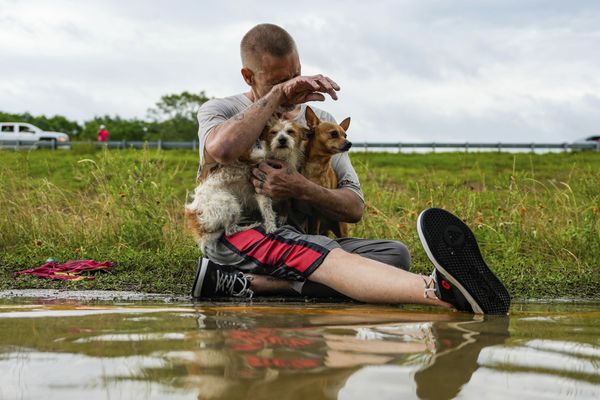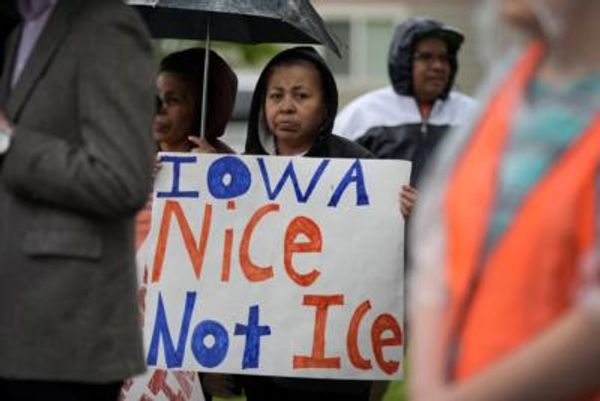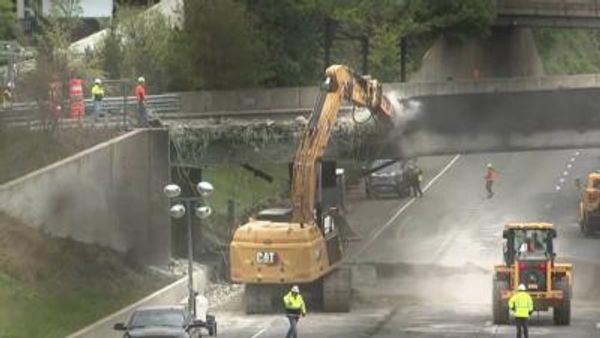
“Thanks for all the efforts. But these are not enough,” Eman*, a primary care doctor, messages on WhatsApp.
The scenes we now witness in Gaza are otherworldly. Tiny babies huddling together for warmth on the precipice between life and death. The dead lying in the street, piling up outside hospitals, or decomposing in the arms of loved ones. There are no ambulances to reach them and no safety guarantees near homes or hospitals to bury the corpses of the dead. An inferno where flies rein on spilled blood, maggots wriggle in infected wounds without antiseptic, and orphaned dogs, once loved family pets, eat the flesh of human remains. Every vital elixir of living — protection, food, water, fuel, shelter, healthcare, and hope — is being destroyed and evaporating life itself.
Even the ability to grieve — the loss of a loved one, a home and a garden, a pet, an ancient city — is being stolen with a minute-by-minute descent into the stuff of nightmares.
These are images that sear our eyelids and we can’t blink them away even when we sleep. They nauseate. They anger some into action and turn others off completely. Most of all, they dehumanise. Mahmoud*, a Gazan colleague and professor of language, writes, “It’s not only bombs and brutality we are subjected to, but sheer demonisation and blame. The second, is even worse.”
There have been words and stories shared to drench our social media worlds and fill the largest library archives. Our collective efforts from all corners of the world to demand a ceasefire and the protection of those in danger, albeit growing, have been slow, lonely, and far from enough. We have appealed to compassion. We have called on the Hippocratic Oath and virtues of medical and humanitarian ethics. We have tried justice, rights and law. We have waved around legal definitions of atrocity crimes.
My good friend Ola, a Gazan doctor, asks: “What else can we show to prove we are being killed with no mercy?”
In crying louder to be heard, sometimes even (understandably) swearing our disbelieving heads off for the world to acknowledge Palestinians as actual humans, we now find ourselves entering into places that illuminate the graphic savagery. And here we must be very careful. We must strive to strike the right balance of dignified shouting without perpetuating the very demonisation we are fighting to end. Gazans are better, and deserve better, than that.
This week at the National Press Club in Canberra, the UN Special Rapporteur for the occupied Palestinian territory, Francesca Albanese, asked us to “rehumanise the discourse”. Behind every dreadful bloody truth is a person with a narrative, a past, and future dreams, dashed or severed as they may be.
Ola’s brother sustained a critical head injury from an Israeli airstrike and died last week, leaving behind his wife and their first unborn child. The story is violent, but it is incumbent on us to tell more than that. Omar was a bright doctor, entrepreneur and community advocate. Ola, with no opportunity to grieve or say goodbye, writes a eulogy through WhatsApp: “He was pure and caring. He would fight injustice to his last breath. He spent his time trying to help others find their way and their purpose in life. May his unborn child grow up to become the wonderful man that he was”.
Among the missing, displaced and dead are accountants and engineers, physiotherapists and schoolteachers, lawyers and YouTubers, journalists and vets, clergy and poets, bread makers and street cleaners and beach caretakers. Mahmoud* messages of his student, a young language scholar killed in a missile strike, who had been poised for studies in Australia in postcolonial discourse and the pursuit of gentle dialogue, “full of energy, a worldly outlook, respecting difference”. A taxi driver friend, Ahmed, displaced and living in a minuscule single room with 10 others writes, “We are dying here,” and then sends an image of his smiling daughter with the words, “She wishes us to stay well and in peace”.
In these stories we must search for a piece of ourselves. Tell not only horrors but personhood. Speak their names at the dinner table with friends. Stop gawking at the awfulness and then saying absolutely nothing, or worse, “We are thinking of you,” and then doing absolutely nothing. Gazans, and those of us journeying alongside, don’t want your thoughts. We want your actions.
Mahmoud* writes, “We are not superhumans. But we will remain steadfast. There is no other choice.”
*Names have been changed






